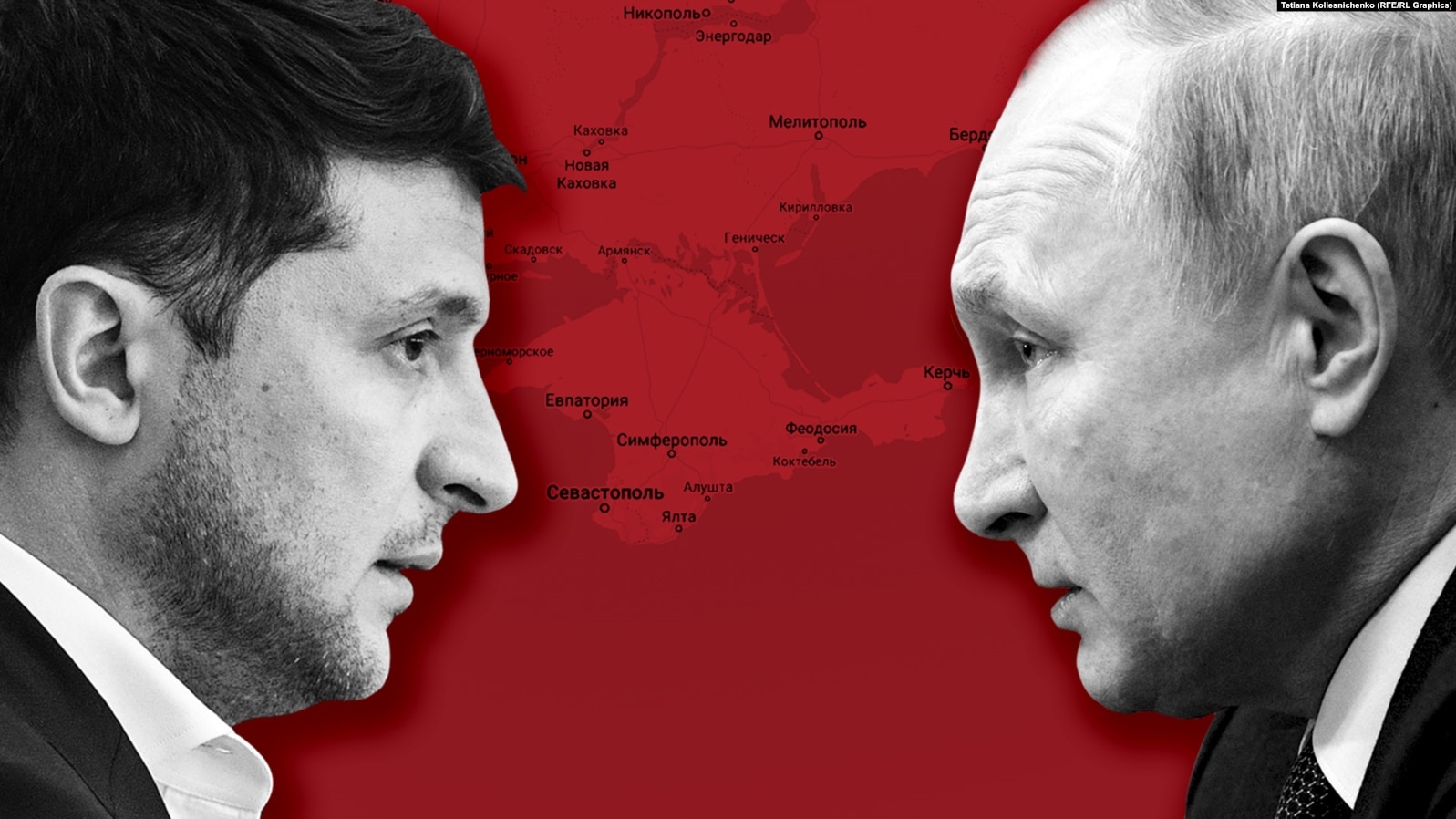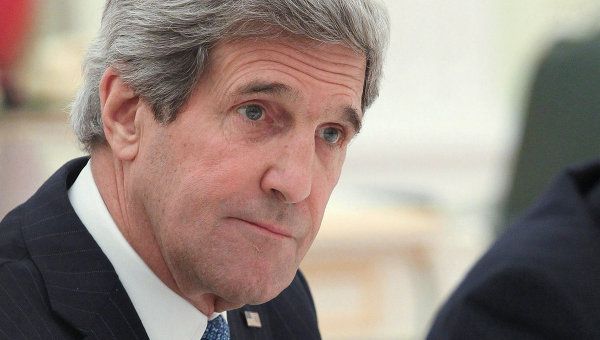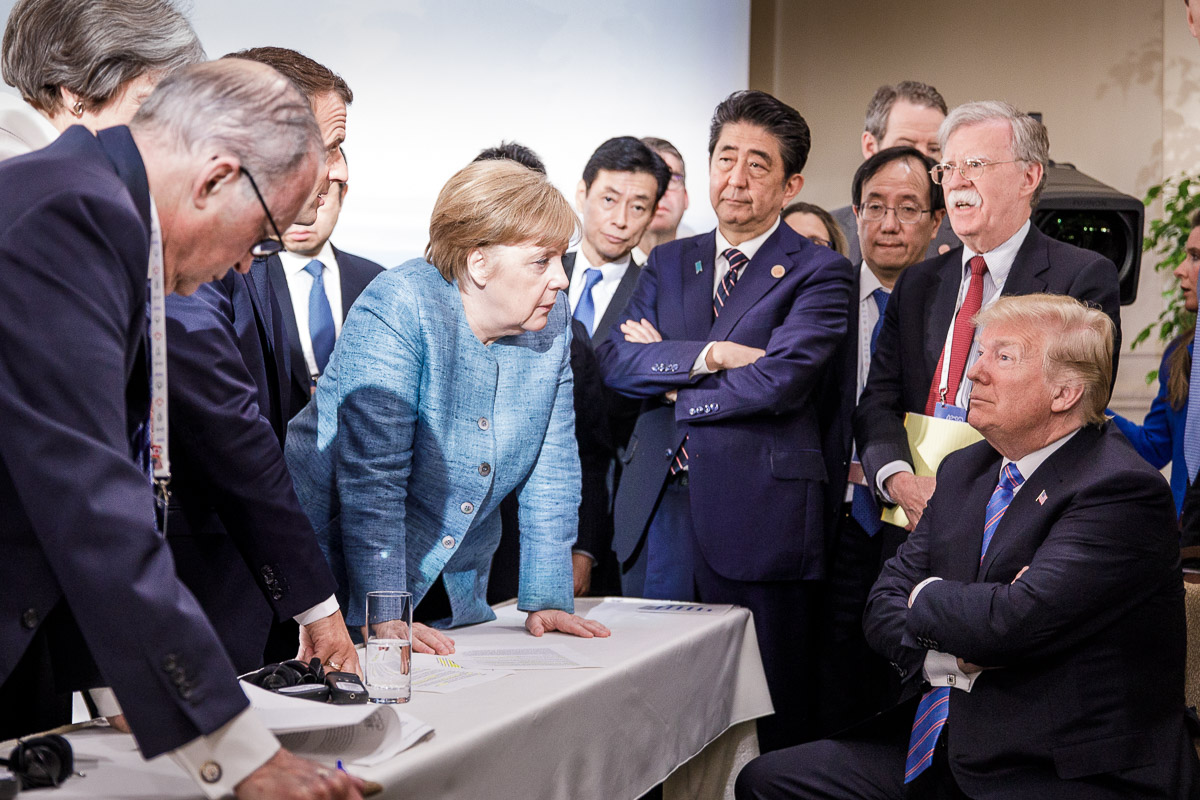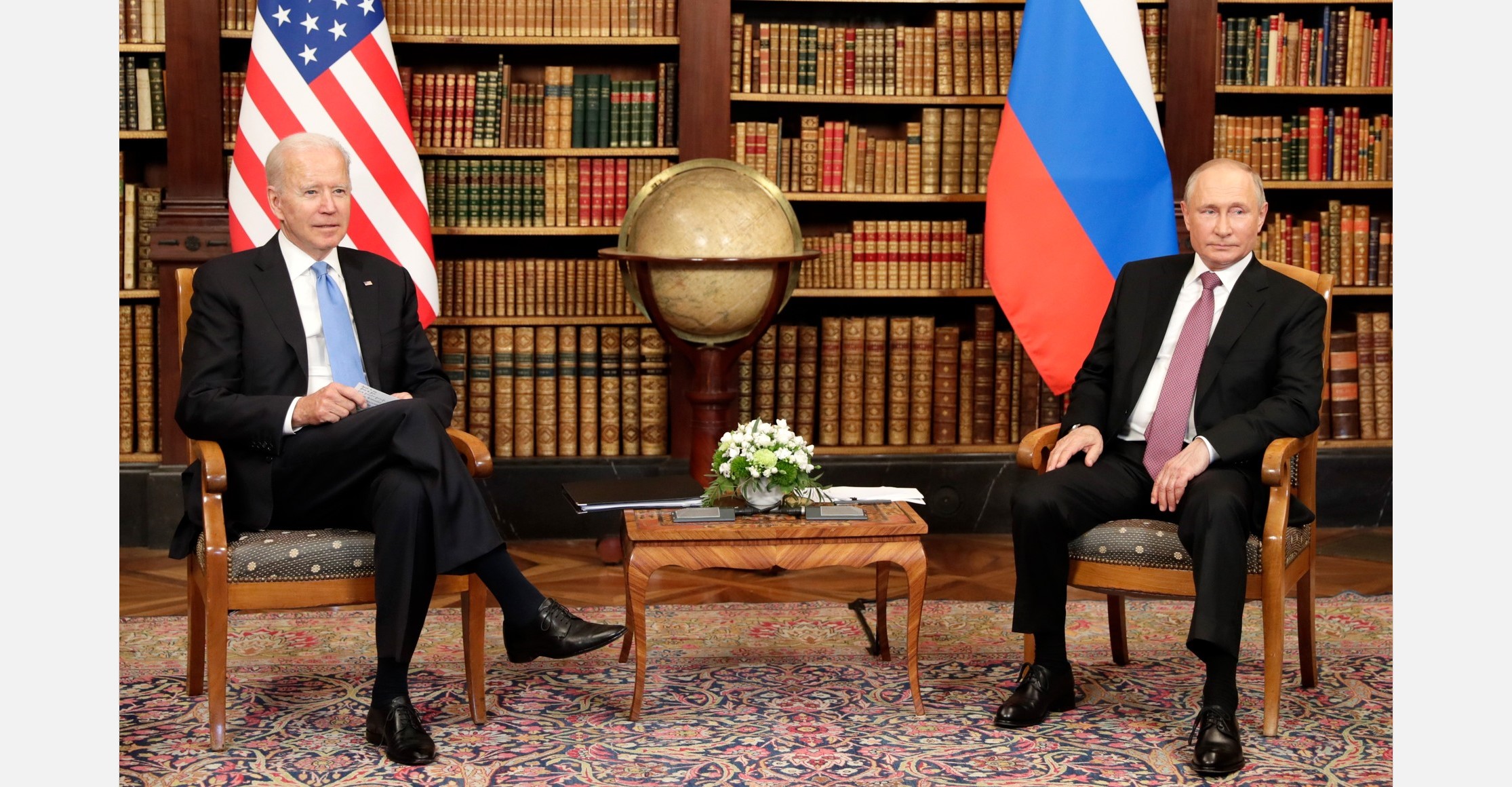To read Part 1, please click here.
Elaborating on Putin’s pre-conditions (see EDM, April 28, 29) to such a meeting, Russia’s top diplomat reaffirms that Putin and himself (Lavrov) would not answer phone calls from their Ukrainian counterparts as long as the latter attempt to discuss the conflict in Donbas with Russia. “The Ukrainians want to portray Russia as a party to the conflict. But they must discuss settling this conflict with Donetsk and Luhansk, not with us.” Lavrov continued, “If, however, [the Ukrainians] wish to discuss normalizing bilateral relations with us, we are ready at any time […] at any location” (RIA Novosti, April 28).
In order to qualify for a president-to-president meeting, Lavrov reminded Ukraine that it should accept the terms of the 2015 Minsk “agreement” unchanged in their content and their sequence. It should fulfill the December 2019 Normandy summit’s “decisions,” mainly by legislating a “special status” in negotiations with Donetsk-Luhansk and incorporating the Steinmeier Formula. And it should return to compliance with the July 2020 “enhanced” ceasefire agreement, negotiated between Kyiv and Donetsk-Luhansk in the Minsk Contact Group. According to Lavrov, reinstating this agreement is the foremost topic in Putin’s telephone conversations about Ukraine with German Chancellor Angela Merkel and French President Emmanuel Macron, among the Normandy group’s top diplomatic advisers, and in the Minsk Contact Group (RIA Novosti, April 28).
Behind the megaphone diplomacy, however, Putin’s and Zelenskyy’s top advisers, Dmitry Kozak and Andriy Yermak, respectively, are confidentially negotiating the agenda, date and venue of a possible president-to-president meeting. Putin’s emphatic refusal to discuss the war in Donbas with Zelenskyy (see EDM, April 28) is a public posture; and Lavrov’s listing of Ukrainian qualifications for such a meeting (see above) can be seen not as pre-conditions but as a Russian-desired outcome of a Putin-Zelenskyy meeting. The Kremlin may well seize the opportunity of a meeting with Zelenskyy in order to bring up the Donbas war and press him into some commitments regarding the armistice at the front and the political process. Reinstating the July 2020 “enhanced” ceasefire agreement, co-equal between Kyiv and Donetsk-Luhansk, is currently Russia’s foremost priority in the Minsk Contact Group and the Normandy process (see above). Another Zelenskyy cave-in on this issue alone (out of Lavrov’s comprehensive list) would be a trophy for Putin from a meeting with the Ukrainian president.
Yermak had guided Zelenskyy into accepting the Steinmeier Formula in October 2019, as a ticket to the December 2019 Normandy summit; he agreed with Kozak on a “consultative council” equalizing Kyiv with Donetsk-Luhansk in March 2020, as a price for the hoped-for April 2020 Normandy summit (aborted following Ukrainian civil society’s backlash); and he guided his president into accepting the July 2020 agreement, again equalizing Kyiv with Donetsk-Luhansk (see above), which is why Kyiv has backtracked on it since then. At present, Yermak holds out the tempting prospect to his president that a one-on-one meeting of Putin and Zelenskyy “could become a landmark historical event” (Ukraina 24 TV, Liga.net, April 27).
Putin has announced that he would put the “restrictions” on the Russian language and Russian Orthodox Church in Ukraine on the agenda of any meeting with Zelenskyy. The latter is almost certainly aware that concessions to the Kremlin on those issues would carry prohibitive political risks for him in Ukraine. The Kremlin’s spokesperson, Dmitry Peskov, has indicated that normalizing overall bilateral relations would be on the agenda, if a meeting takes place (TASS, April 29).
Ukrainian leaders have consistently experienced fiascos when making deals with their Russian counterparts bilaterally, outside an international framework or international law: Leonid Kuchma in 2003 (Kerch Strait–Azov Sea agreement), Viktor Yushchenko in 2005 (RosUkrEnergo natural gas deal), Yulia Tymoshenko in 2009 (long-term contract with Gazprom), and Viktor Yanukovych in 2010 (Kharkiv agreement on the Russian Black Sea Fleet’s basing in Crimea).
Russia’s open assault on Ukraine since 2014 has thus far precluded that sort of one-on-one deals. Zelenskyy, however, is now willing and indeed eager to return to the practice of bilateral deals with the Kremlin. He is vulnerable on many counts, some of which he has himself unwittingly displayed: extreme aversion to even low-rate military casualties; “ending the war” as a domestic political platform; a supplicant’s posture in his quest to meet with Putin; relegating competent diplomats to secondary roles in the Normandy and Minsk processes and the bilateral negotiations with the Kremlin.
Read More:
- “West’s attack on Russia”: Russian propaganda’s universal explanation of everything
- The Kremlin sets insuperable preconditions to meeting with Zelenskyy
- Zelenskyy seeks a summit with Putin again
- Yermak’s earlier giveaways come back to haunt Zelenskyy and Ukraine
- Kozak-Yermak plan on Donbas: The fine print
- Official data prove Russia funnelled trainloads of ammo and fuel to occupied Donbas in early 2015
- (No) right to a fair trial, or a manual to Russia’s conveyor of repressions in Crimea
- Escalation around Donbas: Is the Ukrainian army prepared for full-scale Russian aggression?
- Russia closing off more of Black Sea even as it pulls its land forces back from Ukrainian border
- Putin may have pulled back from Ukraine border but he did not back down, experts warn
- Four lessons learned from Russia’s Ukraine buildup
- Deconstructing Putin: it is time the West learned to be bold
- Putin’s aggression against Ukraine part of broader effort to destroy international rules of the game and force West to recognize his right to do so, Skobov says
- Putin to turn a deaf ear to Biden’s words, Portnikov says
- “Dropping rumor bombs in Ukraine”: Russia’s building up disinformation around its military build-up
- “Poke-and-probe.” Why Russia is massing troops & military hardware along Ukraine border








